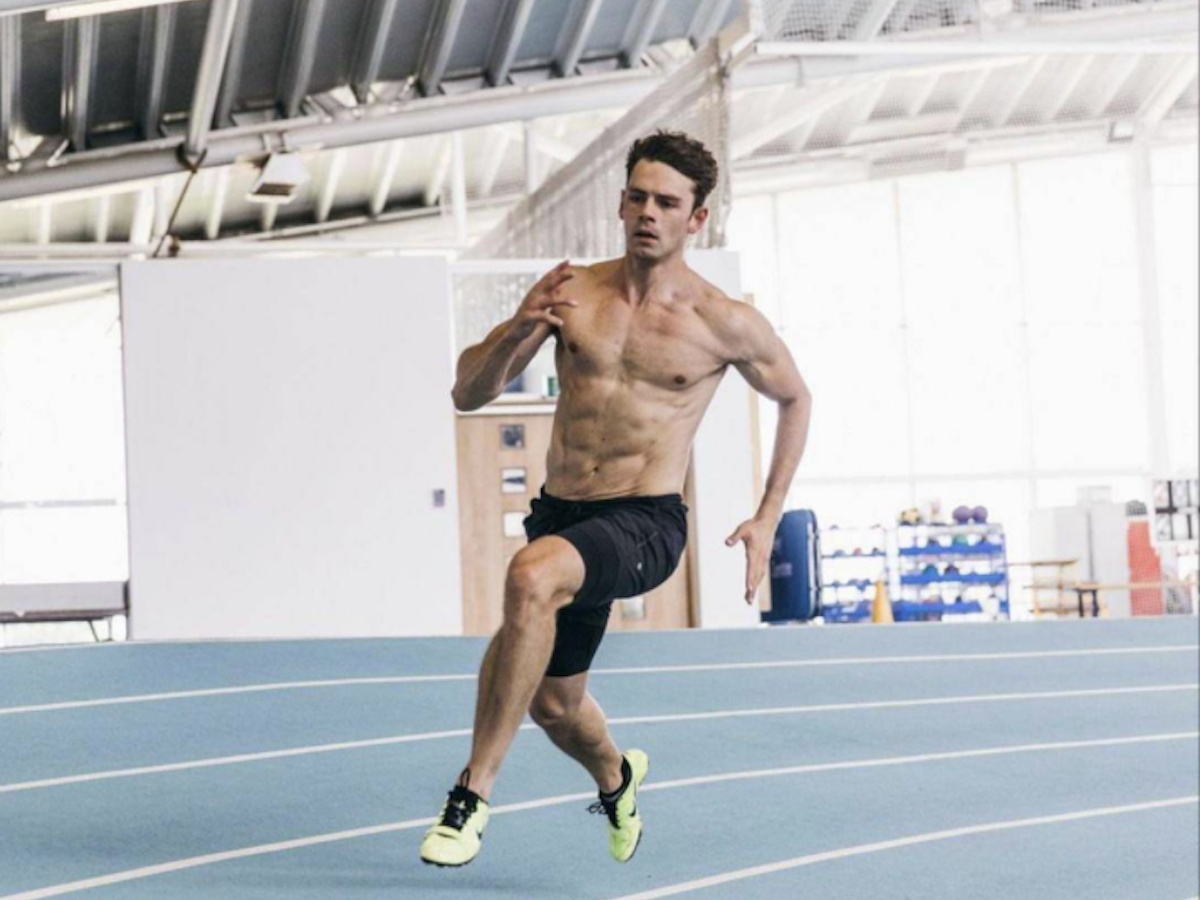The personal trainer who only eats 2 meals a day reveals why he won't touch a protein shake

Max Lowery
With the rise in popularity of gruelling, high-intensity workouts, protein shakes have become a post-workout go-to for many.
There's no doubt that protein is an important part of post-exercise muscle recovery.
But not everyone's convinced we need to be consuming shakes in this way.
Personal trainer Max Lowery, 28, says he has never had a protein shake in his life — and doesn't intend to.
He believes they're unnecessary for about 90% of people.
As summer kicks off, many people will be well into a healthy regime, whether that's following a new diet or a fitness plan.
With the rise in popularity of gruelling, high-intensity workouts, protein shakes have become a post-workout go-to for many. We're constantly promised they'll repair destroyed muscles and prevent the dreaded two-day burn.
It's also no wonder gyms are promoting their fancy new shake bars, which come in at more than £7 ($9) a pop sometimes, as a nice little add-on to your already pricey gym class.
There's no doubt that protein is an important part of post-exercise muscle recovery. But not everyone's convinced we need to be consuming shakes in this way.
Before becoming a personal trainer, Max Lowery, 28, who created the 2 Meal Day intermittent fasting plan, was a professional sprinter for four years.
He told Business Insider why he has never taken a protein shake in his life — and doesn't intend to.
Instagram Embed:
http://instagram.com/p/BMM17k2Ao-A/embed/
Width: 658px
Lowery believes protein shakes are unnecessary for about 90% of people.
"The only people who might benefit from them are vegans who aren’t being so careful with their diets — so it's an easy way to get some protein — or elite athletes who are training twice a day six days a week," he said.
"The average untrained person needs as little as 60-75g of protein and the average trained person who exercises three times a week needs 1.2g-2g per kilo of body weight. You can easily get enough protein from eating real food.
"In fact, too much protein can actually be broken down into sugars that create an insulin response which can facilitate fat storage. This is called gluconeogenesis."
And he's also unconvinced by what's going into some of these powders.
"Lots of shakes are packed with artificial sweeteners like corn syrup solids, sucralose, and acesulfame potassium —companies use these because they are addictive and send a signal to the brain to keep drinking or eating without an off switch — even if they, themselves, don't contain any calories."
He added that a lot of whey protein comes from poor sources as well. "Most commercial whey powders are high-heat-treated, acid-flushed, and stripped of vital nutrients, creating an imbalanced, acidic 'whey isolat,' that's frequently contaminated with synthetic additives, chemical detergents, and heavy metals," he went on.
"It's no wonder they have to use all these sweeteners to cover the taste."
Instagram Embed:
http://instagram.com/p/BWksFQgB32A/embed/
Width: 658px
If you're absolutely hell-bent on shakes, then Lowery says he recommends vegan proteins to his clients, such as Form Nutrition. "They're generally healthier and take pride in the quality of their ingredients," he said.
Regarding studies out there that support the consumption of protein shakes after a hardcore workout, Lowery says: "Like with many food products the companies funding studies have an interest in positive results. There have also been a few recent unbiased studies that suggest your protein consumption over the course of the day is what's important, the emphasis that has been put on the hour after exercise is false."
Protein shakes are part of the hard sell in fitness
Lowery has another issue with protein shakes: the way they are marketed.
"Sports drink manufacturers have been incredibly successful in convincing us that we need to consume copious amounts of their product in order to look and feel good. It's a multi-million-pound industry with clever marketing and celebrity sports gurus promoting it."
Instagram Embed:
http://instagram.com/p/BTVq_GaBxDt/embed/
Width: 658px
And the rise of Instagram fitness stars has only intensified things, he says.
"Influencers are being paid thousands to promote their products. They prey on people’s emotions. Unfortunately, people look at these influencers and believe that they look like that because they take protein shakes.
"This is untrue. They look like that because they train hard and eat well. There is no quick fix to getting fit and healthy, don’t waste your money consuming dust. Eat real food."
NOW WATCH: This 50-lane holiday traffic jam in China will make you regret ever complaining about your commute
See Also:

 Yahoo News
Yahoo News 

